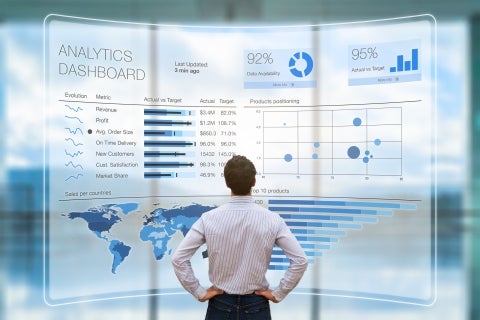Business Analytics vs Data Analytics: Understanding the Differences

In today's data-driven world, businesses are increasingly turning to analytics to gain insights into their operations and make better decisions. As a result, more professionals are choosing to upskill in either data science or business analytics.
However, many still could not make a distinction between the two. So, where do you start?
This rundown will help you to understand the differences between business analytics and data analytics, and help you decide which one suits you best.

Learning the Definitions

Business Analytics
Business analytics is a set of disciplines and technologies for solving business problems using data analysis, statistical models and other quantitative methods1. It typically includes descriptive analytics (what has happened), predictive analytics (what could happen), and prescriptive analytics (what action should be taken). Business analytics is mainly concerned with decision-making within a business context.
Data Analytics
Data analytics, on the other hand, is a broader term that includes the process of examining data sets to find trends and draw conclusions about the information they contain2. It is a more general field that doesn't necessarily focus on business context, but rather any context where data is present and can be analysed for various purposes. Data analytics can be used in various fields such as healthcare, sports, technology, social science, and many more.

The Differences Between Business Analytics and Data Analytics
From the definitions alone, we can see a clear distinction between the two. But delving deeper makes it easier to understand why these two fields are not the same.
Different Focus Areas and Objectives
While business analytics and data analytics involve data to inform decision-making, their focus areas and objectives differ. Business analysts use data to analyse and interpret data to gain insights into business performance and identifying areas for improvement.3 In contrast, data analysts focus more on gathering and analysing the data itself. They gather data, identify useful information from it, and transform their findings into digestible insights4 that help others determine what to do with the information.
Varied Skill Sets and Expertise Required
Not only is the focus different, but business analysts and data analysts also require different skill sets and expertise.
Business analysts need strong communication skills, problem-solving abilities, facilitation skills, and knowledge of business structure5. They often work closely with decision-makers and stakeholders to define business problems, conduct market research, and develop data-driven solutions.
Meanwhile, data analysts require a strong background in computer science, mathematics, and programming languages such as Python, R, or SQL. They need expertise in data visualisation and machine learning techniques to analyse large data sets and extract meaningful insights.6

Choosing the Right Approach
In a business setting, the approach depends on the situation. Similarly, when choosing a career path between the two, it is good to know which one is the right fit for you.
Which One is Right for You
Choosing between a career in business analytics or data analytics depends on your background, interests, and career goals. If you have a strong business background and enjoy working with decision-makers to solve business problems, a career in business analytics may be more suitable for you. On the other hand, if you have a strong technical background and enjoy working with large data sets to uncover hidden patterns and trends, a career in data analytics may be a better fit.
Factors to Consider in Decision-Making

When deciding between business analytics and data analytics, consider factors such as job availability, salary, and career path. Both fields offer strong hiring opportunities and excellent compensation. According to Jobstreet, the average salary for a business analyst is about $61,000 annually7, while the average salary for a data analyst is around $57,0008.
Additionally, consider the career path and growth opportunities in each field. Business analysts can advance to roles such as project managers, product managers, or consultants, while data analysts can progress to data scientist or machine learning engineer positions.
Understanding the differences between business analytics and data analytics is crucial for those interested in pursuing a career in either field. By considering factors such as job availability, salary, and career path, you can decide which field best fits your background, interests, and goals.
Regardless of the branch of analytics you choose, you can learn its foundations with the Graduate Certificate in Analytics (E-Learning) course offered by the Singapore Institute of Management (SIM). The course lets you understand business and data analytics basics to prepare you for your next career step.
If you are interested in the exciting world of analytics, call our Student Advisors here.
References
- https://www.techtarget.com/searchbusinessanalytics/definition/business-a...
- https://www.techtarget.com/searchdatamanagement/definition/data-analytics
- https://www.thoughtspot.com/data-trends/business-analytics
- https://www.talend.com/resources/business-analytics-vs-data-analytics
- https://www.cio.com/article/276798/project-management-what-do-business-a...
- https://odsc.medium.com/40-must-know-data-science-skills-and-frameworks-...
- https://www.jobstreet.com.sg/career-advice/role/business-analyst/salary
- https://www.jobstreet.com.sg/career-advice/role/data-analyst/salary





